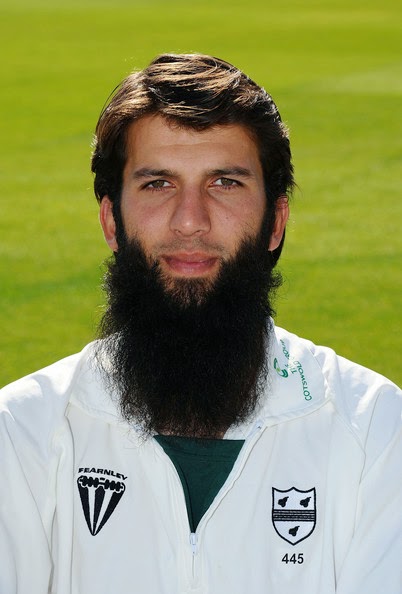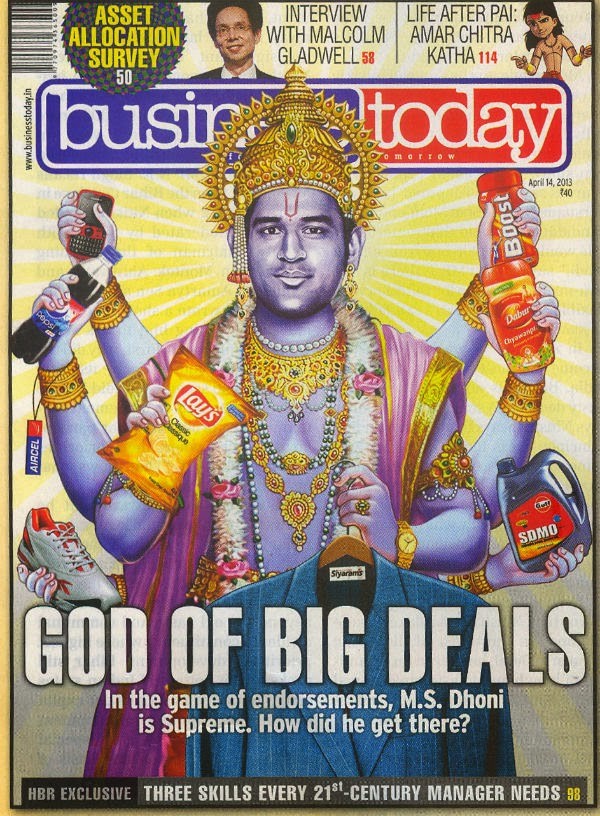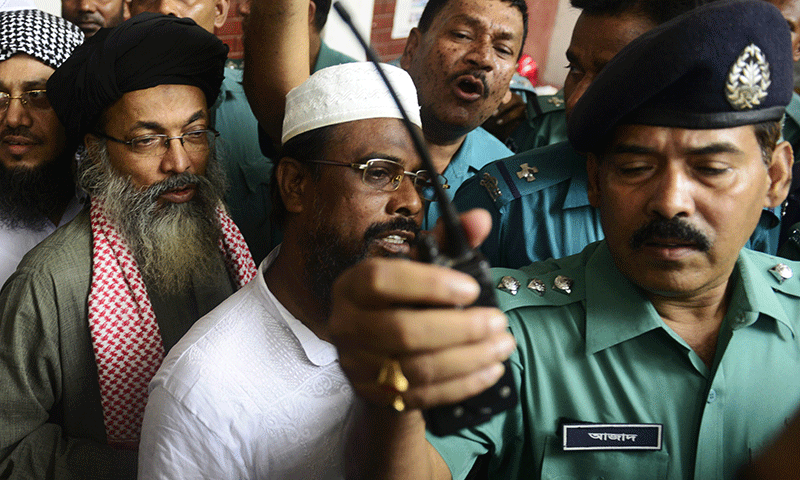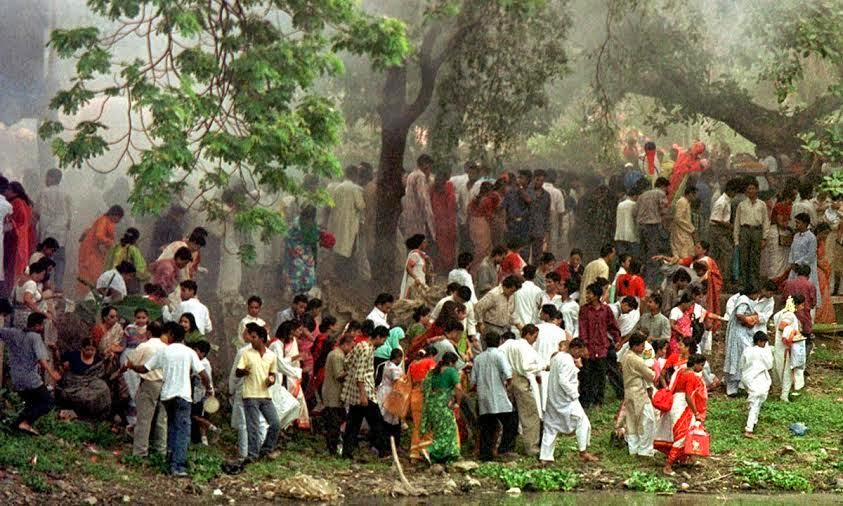Fascinating backstory about Mosul and Iraq in the 1970s. Those were the days.
In the mountains to the north of Mosul,
there lived a tribe which was said to worship Shaitan or Satan….since he was the barrier
between man and God, the path to salvation could be smoothened through
direct invocations to the antithesis of the sacred.
While this is only one man (and we suspect a Sunni muslim by faith) we have heard something very similar from our other muslim friends (all sunnis). Saddam was a bit like Indira Gandhi. Iraqis lived in peace till they were invited into acts of foolishness by the dastardly americans. Even Iraq attacking Kuwait was the fault of America….Ultimately it is all America’s fault.
We daresay this opinion/perception holds true not only amongst Indian sunnis but those around the world as well. As far as Indian Shias are concerned they are trying hard to keep an united front with the sunnis and downplaying the Shia-Sunni rivalry (again it is all america’s fault). At least everyone can agree on this point at least.
………………………..
The abduction of 40 Indians from Mosul, Iraq, has justifiably
triggered a wave of anxiety at their dreadful plight. Should New Delhi
fail to free the hostages forthwith, the anxiety would likely turn into
rage, inspiring stereotypical images of the Islamic world detesting
Indians, of us living forever in the crosshair of blood-thirsty
militants. This narrative will inevitably portray Iraq as yet another
Muslim country hostile to India, a veritable enemy territory.
…
But all those who worked in or visited Iraq in the 1970s will narrate
you another story. They will tell you that unlike, say, the arrogant
Saudis and nouveau riche Emiratis, the Iraqis had an abiding love for
India, not least because they looked upon it as a civilisation as old as
theirs.
….
But this love wasn’t merely sentimental. It was as much based
on respect for India’s technological prowess and assistance to Iraq in
its quest to emerge as a modern nation-state. There was, even in those
days, admiration for India’s democracy and freedom and, above all, its
romantic, at times maudlin, Hindi films.
Indeed, it is vital to recover the narrative of Indians about the
Iraq of the 1970s. For one, it will underscore the grossly limited scope
of contemporary international relations studies, mostly defined and
designed to focus on the interests of global powers. Two, such a
narrative will tell you that Iraq wasn’t always an economically
backward, Islamic fundamentalist country. Three, and more important, it
will portray that a conflict between two nations has severe consequences
for a third country even though it doesn’t share borders with either.
…….
Those Indians who lived in Iraq in the ’70s are either very old or
dead. It’s, therefore, the responsibility of their children to bring the
complicated narratives of the ’70s into the public domain.
…
I’m one of those children, then a schoolboy who visited his parents
in summer or winter breaks every alternate year. My father taught
applied mathematics for eight long years in the University of Mosul, the
city from which the 40 Indians were abducted a few days ago.
…
To reside in Mosul was to breathe history, to even live it. The city
was said to have been inhabited continuously centuries before the Common
Era (CE). Here you could find the mausoleum of Prophet Younis, or
Prophet Jonah to the Christians. There were churches and monasteries
dating back to the sixth century, in sharp contrast to the monochromatic
portrayal of Iraq in the global media.
….
Even heterodoxy flourished. In the mountains to the north of Mosul,
there lived a tribe which was said to worship Shaitan or Satan. Their
logic of worshipping Shaitan was impeccable: Since he was the barrier
between man and God, the path to salvation could be smoothened through
direct invocations to the antithesis of the sacred. I was once taken to
the mausoleum which the tribe held in great reverence, for there was
buried one who had supposedly acquired enormous spiritual powers through
his appeasement of Shaitan. ….
….
Indeed, a land’s antiquity can be judged as
much from carbon dating as from its forms of worship and apocryphal
stories.
…..
Mosul was a fine city, spread on either side of the river Tigris.
Exclusive enclaves of villas dotted the suburbs, the labyrinthine old
quarters and bazaars dominated the city centre. At night, the city would
be lit up with a psychedelic touch. From the roadside cafes would waft
the aroma of chicken skewered on spindles that turned slowly over the
oven, as would drift the lilting voices of Arabic singers. On its roads
cruised spiffy cars, from Mercedes Benz to Volkswagen to Toyota to
Renault, long before they made the Indian roads as their own. Yet, late
night, drunken men returned from taverns in horse-drawn carriages, the
haunting echo of clip-clop mingling with delirious laughter.
….
Mosul, as also much of Iraq, didn’t just choose to dress its ancient
soul in the tawdry dress of modernity. It sought to alter the
sensibilities of its people, and provide a liberal gait to its ancient
style. The societal transformation was manifest in the substantial
presence of women in the public arena. They were in government jobs,
behind shopping counters, in healthcare and teaching professions. They
dressed as they wished, from draping themselves in the black chador to
trousers to skirts to micro-minis.
The freedom the women enjoyed was, in a way, ironical, living as they
did under the authoritarian regime of Saddam Hussein. But his rule
wasn’t just about keeping people under a tight rein. His Ba’ath party
espoused secularism, or strict neutrality towards religion, and
undertook the project of building a modern nation-state. Revenues
gushing from oil wells helped finance this modernist project. For
instance, college education was free, including even textbooks, subject
to the proviso that irrespective of the socio-economic status of the
student, he had to join the army as an ordinary soldier in case he
failed to clear the annual college examination in two successive years.
……
Indians were respected precisely because they played a significant
role in Iraq’s project to emerge as a modern nation-state. They held a
slew of technical teaching positions in universities, manned its
healthcare systems, built its roads and rail links, rejuvenated its
agriculture, and trained its air force pilots. These roles the Indians
have played elsewhere, but in Iraq rarely were they looked upon, as they
are in some Western Asian countries, as citizens of an impoverished
land selling their skills for better remuneration. For instance, Indians
driving out of cities were often waved past check-posts without
security search, an astonishing concession in a paranoid police system
that Iraq decidedly was.
…..
Perhaps their respect for Indians was because of the common
sensibilities ancient civilisations are said to spawn. It was this
sharing of sensibilities which perhaps explains the popularity of Hindi
films in Iraq. They were a rage, a new release drawing packed halls. My
most enduring image of their love for Hindi cinema was the audience
response to a scene in Sholay. It was that dramatic shot in which Gabbar
Singh, after mowing down Thakur’s family, points the gun to his
grandson, trembling in fear. The audience burst out shouting, “No, no,”
and took to hurling coke bottle caps at the screen. You would have
thought the Iraqis were incapable of fighting one bloody war after
another.
…..
However, it was on the pavements of Mosul I grasped the roots of
Iraqi’s respect for India. It had this curious tradition of students
spreading their bedrolls on pavements and studying in the bright glow of
city lights. Presumably the students belonged to lower socio-economic
strata, their home perhaps too overcrowded to prepare for examinations
diligently. On such nights they would communicate to me through a
smattering of English words and sign language that while Iraq had
exceptional wealth, the Indians possessed knowledge and brain-power.
……
The more articulate among them would ask me what it was to live in a
democracy, to vote and choose leaders, to enjoy the freedom of
expression. It was brave of those students to speak on politics. An
Iraqi friend of my father’s confessed that they refrained from
discussing politics in extended family gatherings, suspicious as they
were of cousins working as Saddam’s spies. One night an anguished cry
rent our neighbourhood. I was later told it was of a man whom the secret
police had whisked away for engaging in clandestine political activity.
Such men, it was said, never returned.
…..
To my childish eyes, Saddam didn’t seem a brutal dictator on the day
we were out on a picnic in the rugged mountains of the Kurdish area. We
heard the clatter of choppers as they hovered over us, descending
slowly, their tails swaying. From one of them stepped out Saddam,
briskly walking around shaking hands. He joined a circle of Kurds, their
arms interlocked, taking two steps forward and kicking their right legs
high, and then two steps backward to toss their lefts legs in the air.
The dictator stood so close I could have even touched him. In hindsight,
I guess it was a show mounted for television.
……
Nevertheless, I was impressed. Till then, the closest I had ever been
to a political leader was around 100 meters from Indira Gandhi, who had
driven down the roads of Patna, where I was schooled, in a convertible.
Later in the evening, I saw Saddam address a crowd from the balcony of
the governor’s residence. They cheered him uproariously every now and
then. I thought he was Iraq’s Indira, boasting an indomitable will and
enjoying tremendous popularity.
…….
All this was before Saddam entangled himself in the Sunni-Shia
competition and opted to become a footsoldier in America’s grand plan to
stem the Islamic revolution in Iran from spilling across it borders.
Like so many other West Asian leaders in the past, Saddam too wished to
emerge as a pan-Arab personality. In 1980, he unilaterally declared he
was abrogating the 1975 Algiers treaty that had settled the
Shatt-al-Arab border dispute between Iran and Iraq. A desultory,
disastrous Iran-Iraq war ensued, prompting Indian professionals to leave
the country.
…..
They left not only because of deteriorating security condition; it
was also because the government had diverted its financial resources to
war efforts and could no longer bankroll an expensive retinue of
expatriate professionals. Eight years later, the war ended, but not its
consequences.
….
Presiding over an impoverished state, Saddam demanded monetary
compensation from Saudia Arabia and Kuwait for having battled on their
behalf the Iranians and their Islamic zeal.
…..
Perhaps he wouldn’t have
invaded Kuwait but for the duplicitous role American ambassador in Iraq
April Glaspie played. The transcripts of her telegrams to Washington
reveal she had tacitly encouraged Saddam to invade Kuwait, or at least
conveyed the impression that the US wouldn’t intervene in an
Iraqi-Kuwait armed conflict. No doubt, Saddam’s troops overran Kuwait in
a swift raid, but it also became a pretext for the US and its allies to
launch the first Gulf War in Jan 1991. An impoverished Iraq was bombed
mercilessly.
…..
But its woes still didn’t end. Stringent UN sanctions were imposed on
Iraq, which was disallowed to determine the quantity of oil it could
sell. Battered, its economic recovery became impossible and, tragically,
infants began to die for lack of food and medicine. Then came George
Bush’s neo-cons, who pummeled Iraq further, in the hope of reconfiguring
the region to their imagination.
…
Over the last few years, the democratically elected government in
Baghdad had succeeded to put Iraq back on rails. Not only did militancy
show a downward spiral, Iraq clocked an impressive growth of 8.5 per
cent in 2012. In the same year, it pumped 3 million barrels of oil a
day, the highest since 1983. It had planned to commit $ 45 billion on
infrastructure in 2013, conveying its resolve to rebuild its economic
sinews.
…..
A confident Baghdad was also inclined to re-forge old ties with
India. In 2012-2013, Iraq accounted for 13 per cent of India’s oil
imports, taking the second slot among the countries meeting Delhi’s
energy needs. It offset the dip in supply from Iran because of UN
sanctions. In 2006-2007, India’s exports to Iraq were worth $ 200
million. The figure jumped to $ 1.3 billion in 2013. Iraq’s imports
showed even a bigger spurt – rising from $ 5.5 billion in 2006-07 to $
20 billion in 2012-13.
…..
When Iraqi Prime Minister Nouri al-Maliki visited India last year, he
expressed his wish for a larger Indian investment in the oil and gas
industry and cooperation in the healthcare and education sectors. To
demonstrate Iraq’s faith in Indian doctors, he checked in at a hospital
in Gurgaon. On average, 100 Iraqi medical patients come to India daily.
…..
But hopes of Iraq’s revival were cruelly dashed, yet again, because
of America’s adventurism, its penchant for regime change in countries
that had been opposed to it. Much of the turmoil in Syria had been
courtesy the Americans, who provided arms and logistical support to
militant groups arrayed against Syrian President Bashar al-Assad. It can
well be accused of encouraging if not directly supporting the Al Qaeda
footsoldiers who have banded under the banner of Islamic State in Iraq
and Syria (ISIS). It’s the ISIS that has swept through Iraq, triggering
an upheaval in which the lives of 40 Indians have been imperilled.
…….
Cut to 2003. When the Americans began to amass troops in Kuwait for
launching the invasion of Iraq, my father often thought of his Iraqi
friends. To allay his worries, I took from him the names of his
colleagues, believing academicians had greater chances of surfacing in
an internet search. Over weeks of relentless search, I stumbled upon a
professor whose name matched one on my father’s list. I wrote to him
friend asking him whether he had been in the University of Mosul and
remembered my father.
…..
I received a reply from him the next day. Yes, he said he had been my
father’s colleague and listed others from the faculty and their
whereabouts. They had all moved out of Iraq. Even the Jordanian
professor’s extended family had dispersed all over West Asia, and his
children were employed in the UAE. He said Iraq has lived through
terrible times, and fervently hoped Iraq could recover the happy
ordinariness of life now that Saddam had been deposed. But he added a
caveat, “Not under American occupation. Never.”
……
I wrote to him saying, yes, the burden of challenging the American
hegemony had now fallen on the Iraqis. He didn’t respond. The professor
must have thought of me as a foolish man, preaching defiance and
rebellion from the comfort of certainty denied to his country for a
generation.
…..
As we worry over the fate of 40 Indians, spare a thought for the
Iraqis, who became victim of the overweening ambitions of a dictator and
the callous arrogance of a superpower. Undoubtedly, we should bristle
against the Islamic militants. But we should also against the Americans,
who fight wars in distant lands, their own people insulated from
unimaginable miseries and dislocations of wars.
……
Link: http://www.firstpost.com/world/iraq-and-india-a-forgotten-love-story-1581885.html
……
regards










OUT,
short ball, Anderson fends it off and loops a catch to backward square!!! Can you believe it!